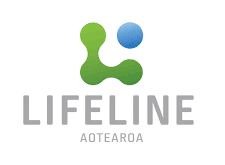
sex•tor•tion
is a type of blackmail when someone threatens to share a nude image or sexually explicit video (or fake nude content) of you online – unless you pay them or provide more sexual content.

How does sextortion work?
Scammers create fake profiles on social media and try to convince you to share explicit or nude images or videos. Sometimes the scammers have fake footage or images which they claim is you. Once they have your content (or fake content) they start making threats. They might say they’ll post the content online or send it to your friends unless you give them money or share more explicit stuff with them.
These scammers are professional criminals. They use different fake social media accounts and target lots of people at the same time, and sometimes they manage to hack into accounts to obtain your content. Sometimes they even pretend to be someone you know or a friend of a friend to encourage you to trust them. They focus on those they think are more likely to do what they want.

How did they trick me?
The scammers use attractive images in their fake profiles, usually of young people. They often pretend to be in a relationship with you online and work to gain your trust. Sometimes, the scammer even shares explicit content to pressure you into doing the same. It’s important to know that usually the scammers didn’t create the content themselves; they got it from somewhere else.
How can I make it stop?


Report to Netsafe
If you need assistance or support Netsafe has got you covered.
Contact us by completing an online report form, emailing us on [email protected] or texting on 4282.
We can offer support, including guiding you through any steps you may be able to take if you’ve been caught up in a sextortion scam, and advice on how to stay safe in future. We may be able to help with reporting profiles and content to the online platforms. Here is how our process works.
Our helpline is open from 8am – 8pm weekdays and 9am – 5pm on weekends.
Our free number is 0508 638 723.

How do I prevent this from happening to me?
It can be risky to communicate with strangers online. Still, we understand that sometimes someone can appear to be a friend, or you can get caught up in the moment.
If you are communicating with someone you do not know IRL/offline, these are warning signs to watch out for:


Are you wanting to help someone you know?
How does it work?
Scammers create fake social media profiles and engage in online conversations , often targeting young people. Their objective is to persuade people to share sexually explicit or nude images and/or videos. Once these sensitive materials are shared, the scammer resorts to threats, such as publicly posting the victim’s content or forwarding it to their contacts – unless a monetary payment or additional content is provided.
These scammers operate in a professional manner, using multiple social media accounts and targeting numerous individuals simultaneously. They generally focus their efforts on those whom they believe are most likely to comply with their demands or provide more content.
How do they convince people to share nudes?
The scammers use enticing images in their fake profiles, typically featuring young and attractive individuals. They build the victim’s trust and often convince them they are in an online relationship. Frequently, they will share explicit content, either in the form of images or occasionally pre-recorded videos to try and coerce young people to share similar content with them. It is possible to make pre-recorded content appear as though it is being streamed live. The scammers themselves are not usually the source of the nude content; they have obtained it from elsewhere.
How do I help make it stop?
How can I support the person targeted?
When an intimate image or video of a person is shared or threatened to be shared without their consent, it can have extremely harmful effects. The individual targeted may experience emotions such as betrayal, fear, anger, or humiliation. These feelings can be intensified if they were deceived into sharing nude or sexual content and they are concerned about potential consequences from their family or school.
It is crucial to recognize and affirm that the affected person is not at fault in these situations. The scammers are professional criminals and possess a high level of expertise in manipulating individuals and establishing rapid trust. Young people, in particular, may lack the experience to identify red flags, but it is important to note that many adults also become victims of this scam.
We recommend that you do not panic and work together with the affected person focusing on a solution. We can, and regularly do, support individuals and families through these experiences. You can get through this.
As this type of scam can cause significant harm. We recommend you check in with the affected person to assess if they require further support. You or the affected person can contact the following:
- If it is an emergency call 111 immediately
- If the affected person is distressed, depressed, or having thoughts of harming yourself, call the Suicide Crisis Helpline: Suicide Crisis Helpline call 0508 828 865 or free text 4357
- Youthline: free text 234 or call 0800 376 633
- Need to Talk: call or text them on 1737
- Lifeline: call 0800 543 354
- Safe to Talk: call 0800 044 334 or text them on 4334
Report to Netsafe
If you need assistance or support Netsafe has got you covered.
Contact us by completing an online report form, emailing us on [email protected] or texting on 4282.
We can offer support, including guiding you through any steps you may be able to take if you’ve been caught up in a sextortion scam, and advice on how to stay safe in future. We may be able to help with reporting profiles and content to the online platforms. Here is how our process works.
Our helpline is open from 8am – 8pm weekdays and 9am – 5pm on weekends.
Our free number is 0508 638 723.




